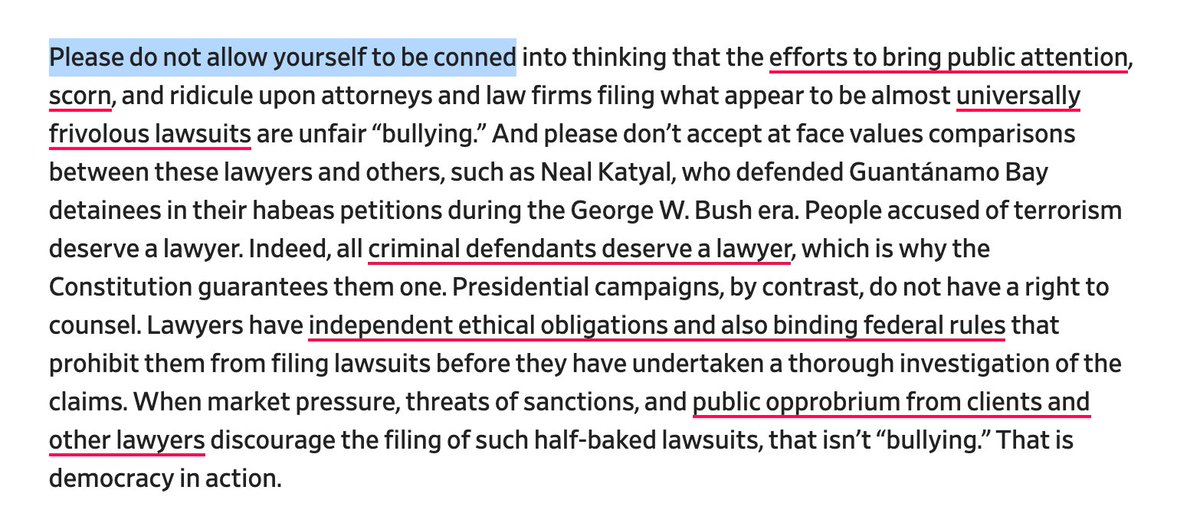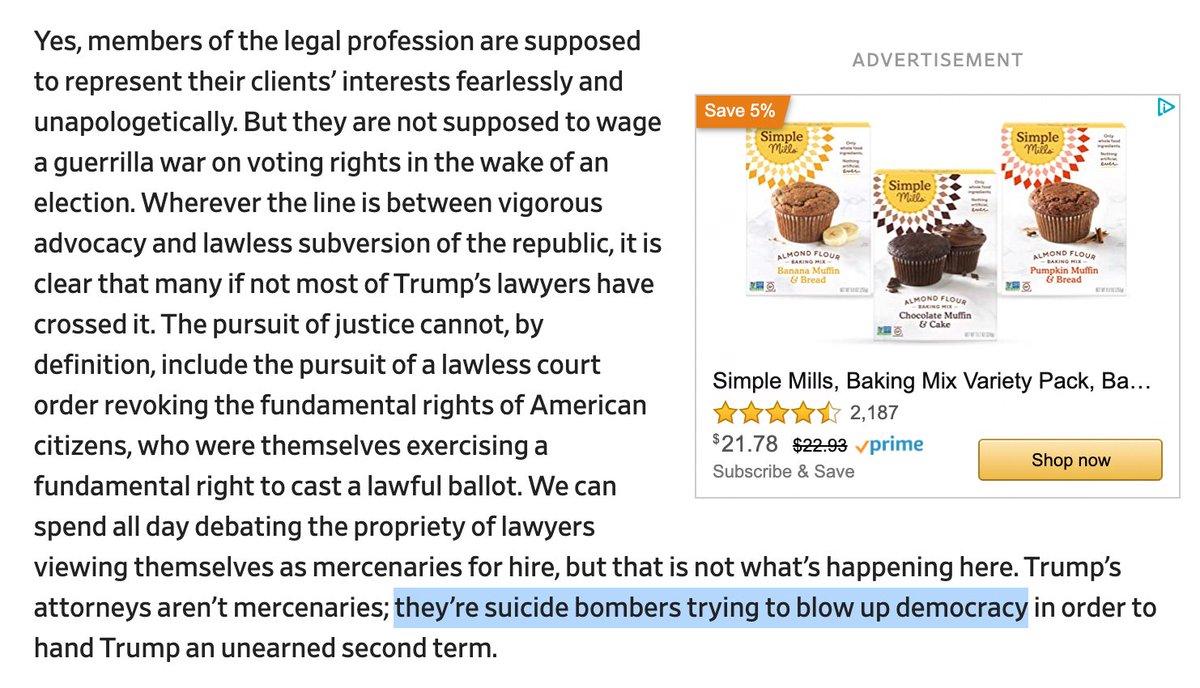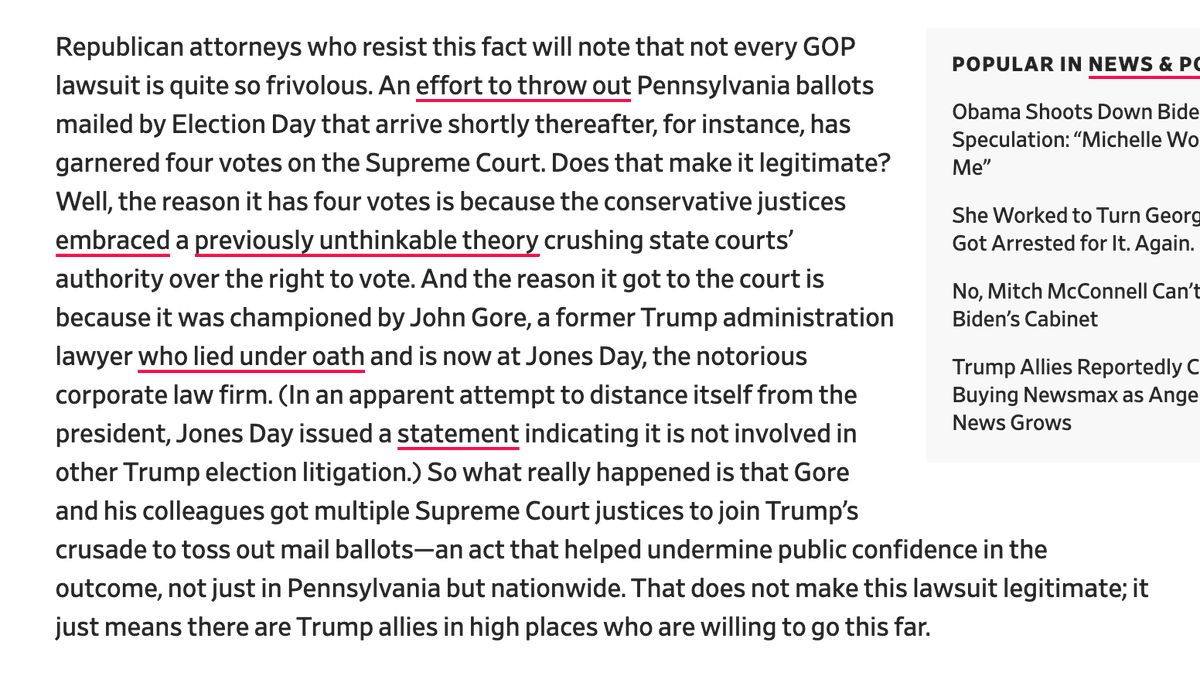
I just finished live-tweeting the Van Buren argument. Here are some overall impressions.
(Thread.)
(Thread.)
https://twitter.com/OrinKerr/status/1333441143539843076
Everyone wants to start with, okay, who will win? I think the telephonic arguments make that harder to tell than in person arguments. On the phone, it's more structured, so there's less discussion that gives you insights on that.
My sense is that there were only two Justices who seemed clearly disposed to one side: Both Sotomayor and Gorsuch seemed on Van Buren's side. I don't think anyone stood out as clearly on the government's side.
I'd guess that the Court reverses in the end, in part based on their recent past w/ the scope of criminal statutes. Justice Alito suggested that he saw this as a hard case, and he's probably the most in general on the govt's side of crim cases.
I think, on the whole, that the Justices realized that the word "so" doesn't tell you much. You can read it either the govt's way or the defense's way. That's always been the problem: The text doesn't answer this question.
So without a clear textual answer, a lot of them were trying to get a feel for the rest of the statute. How broad is it, really? What are the other limits?
This was fascinating for me, having been involved in discussions about this issue since 1998, having written on it, and litigated it, and testified about it -- and heard DOJ's view on it over time.
Until this case, everyone up to now, including DOJ, has agreed that the statute is incredibly broad other than the matter of authorization. The whole game is authorization. See what I wrote about the issue here in 2010: scholarship.law.umn.edu/cgi/viewconten…
In this case, though, DOJ rejects DOJ's past views on this. Not just rejects, but mocks as utterly ridiculous, pure fantasy. DOJ now says there are lots of other limits in the statute. Suggestions in its brief became more confident here, it seems.
But beyond being inconsistent with DOJ's past positions, DOJ's new views don't seem to have a textual basis in the statute. (I've never heard DOJ's proposals before I read their brief, and I've been living this stuff, including while at DOJ, for over 20 years.)
A bright side is that not even DOJ seems to want to defend the broad view of the CFAA, at least today. Perhaps the options become (a) agreeing with Van Buren on "exceeds authorized access" or (b) agreeing with DOJ on that but then creating or hinting at some other new limits.
We'll see. And curious what others thought of the argument! It can be hard for me to have objectivity because I've been too close to this stuff for too long. /end
One more thought, under the universal rule that writing "/end" means you then have more to say. A lot of the Justices wondered, if the statute is so broad under the government's view, why are there only a few overly broad prosecutions? There are answers to that.
The main reason is that lower courts have mostly rejected the same argument DOJ is making in this exact case. The CA11 decision below was an outlier; other circuits disagreed.
When DOJ *did* try to bring a criminal case based on an overly broad interpretation, they lost. The two big test cases were Drew and Auernheimer, and DOJ lost them both. (Whether b/c of outstanding defense lawyering or for another reason, who knows.)
Granted, DOJ lost Auernheimer on venue grounds, but the judges seemed skeptical about the authorization point. My outsider's sense is that these losses chastened DOJ; they weren't going to try to stretch the statute anymore, even though they didn't accept they were wrong.
Enter DOJ's policy requiring review of CFAA charges by the Computer Crime Section at Main Justice, which struck me as an effort to make sure there were no more Drew/Auernheimer cases.
That left DOJ with the broad view of the statute in theory, but not inclined to bring cases based on it. Van Buren is now the test case for the broad view, one prompted by an AUSAs decision to add CFAA charges in a case that happened to implicate a deep circuit split.
Put another way, I think the reason DOJ's broad view hasn't led to a lot of cases is that DOJ's view hasn't prevailed in most courts below, and DOJ has not wanted to press it. If they get the green light here, though, presumably it's a different story. /end#2
• • •
Missing some Tweet in this thread? You can try to
force a refresh











